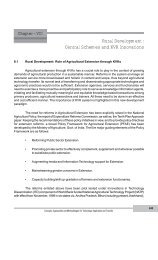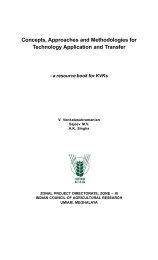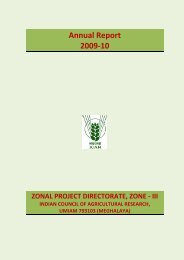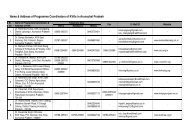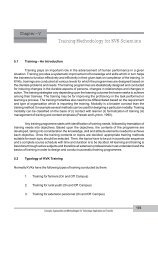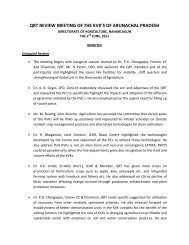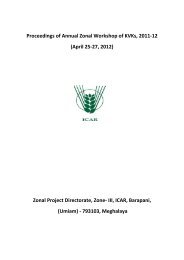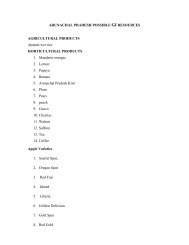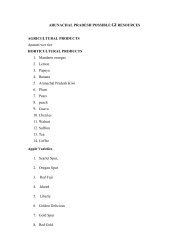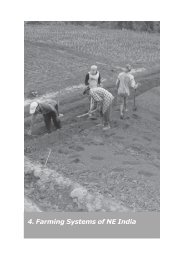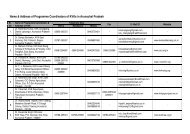Farming Systems Approach - ICAR, Zonal Project Directorate (Zone-III)
Farming Systems Approach - ICAR, Zonal Project Directorate (Zone-III)
Farming Systems Approach - ICAR, Zonal Project Directorate (Zone-III)
Create successful ePaper yourself
Turn your PDF publications into a flip-book with our unique Google optimized e-Paper software.
Sajeev M.V, V. Venkatasubramanian & A.K. Singhaselection by the extension subsystem to the islands varied clientile needs most be based on theresults of on-farm research and extension trials. Generally, the subject matter specialists workingKVKS with extension workers need tobe involved in such on-farm research for getting first handinformation of the field applicability of a particular technology and the constraints involved for itseffective use. The extension personnel and SMS should help to locate representative farmers forthese trials and based on these On-Farm Trials (OFT), the technical committee has to recommendthe suitable technologies that need to be promoted. For a successful implementation of theserecommended technologies, well trained, open minded client system linked KCKS/SMS are neededalong with a suitable extension strategy and media combination. Efforts in these lines are need tobe made in these rural areas.iii)Farmers subsystemThe need for a broad based agricultural development has shifted our attention to a moreconsideration of the extension strategies and methods that are ‘appropriate’ for small farmers,including farm women, youth and settlers. The presence of different socio economic categories inrural communities, and that their circumstances are sufficiently different in the rural areas andtherefore it is to mean that appropriate technology must be developed and adapted by agriculturalresearch and then targeted through ‘appropriate’ extension programmes (which is presently notthere) to reach these major categories. The media of transformation of the selected message tothese different farmer categories need to be selected with utmost care on the basis of the clientsystem resources and cognitive styles. Therefore, instead of working with selected progressivefarmers in a community or rural areas and assuming that technology trickles down, it is importantthat each extension worker should understand the agricultural customs in his area, types of farmingsystem followed, socio economic and psychological distinctions of the farmers. Only by taking allthese factors in the client system under target, the extension specialist can aid the appropriatetechnology development and reduce some of the negative and disruptive social consequences oftechnological change and at last attempt an effective Transfer Of Technology (TOT) programme inthe rural areas.The education level of society at large and farmers in particular carries a significant influencefor the agricultural extension programme. First of all, it affects the educational level of the recruitscoming into the extension system. Secondly, it influences the technical competence that is requiredfor extension subsystem to assist farm families. Properly conducted vocational agricultural trainingcan expose the farmers to practical field or project experiences which gives knowledge about basicscience and a good foundation for the rural farmers of the rural areas about the agriculture and itstechniques.The usefulness of the systems approach for developmentWe have chosen for the use of the systems approach in Agricultural Development of North Eastregion since:24<strong>Farming</strong> <strong>Systems</strong> of North East India



